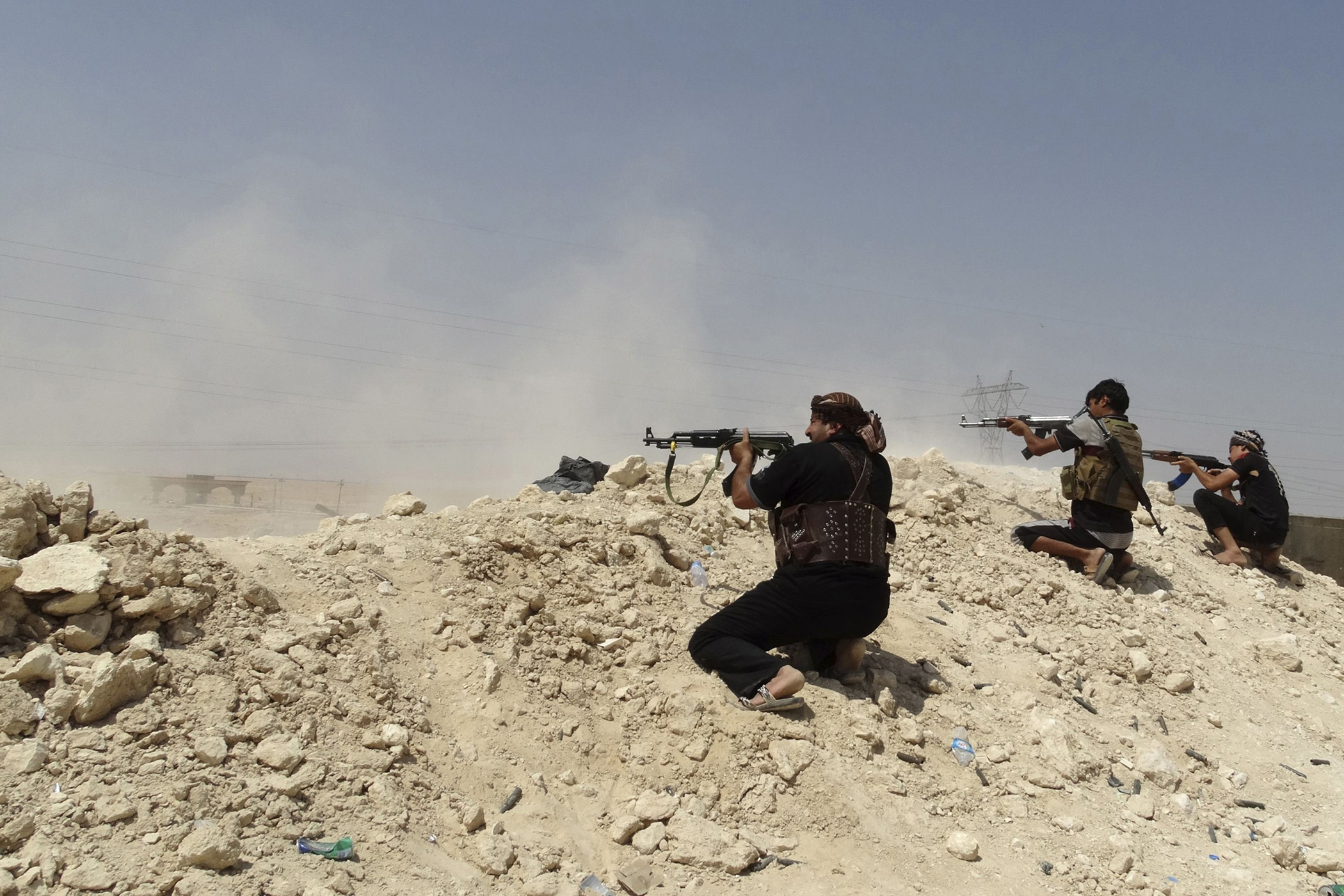
When militants in Iraq made their recent assault on Haditha Dam, it pushed the U.S. to strike in this part of western Iraq for the first time since August. The Iraqi national army and allied Shi’ite militia have been battling the Islamic State of Iraq and Greater Syria (ISIS) for months in Anbar province, but until yesterday, Washington had shied away.
“The potential loss of control of the dam or a catastrophic failure of the dam—and the flooding that might result— would have threatened U.S. personnel and facilities in and around Baghdad, as well as thousands of Iraqi citizens,” Pentagon Press Secretary Rear Admiral John Kirby said in statement Sunday, justifying strikes which seem to fall just outside of the American mission’s mandate.
The facility, wedged in the Euphrates River, is the country’s second-largest dam, and along with its big brother the Mosul Dam, on the Tigris River, it has been a strategic target of the expansionist Sunni militants. Over 95 percent of Iraq’s water comes from the Tigris and Euphrates Rivers, making it easy for anyone controlling those dams to put a stranglehold on the country’s water.
“If these dams—Mosul and Haditha— are outside of the control of the Iraqi state, it would be a national catastrophe,” says Shirouk al-Abayachi, a member of the Iraqi parliament and previously an adviser to the Ministry of Water Resources. “This is the ultimate danger.”
Given that ISIS’s stated goal is the end of the Iraqi state, to be replaced by a new, flourishing Islamic Caliphate, it’s no surprise that the terrorist group has focused on the country’s dams. The power to dry-out Baghdad and the Shi’ite farmlands south of the capital—along with the ability to provide water and the electricity produced by these facilities to their new subjects—could put ISIS in the driver’s seat.
“Military decision makers should take into consideration that these dams are the most important strategic locations in the country,” says al-Abayachi. “They should be very well protected because they affected everything—economy, agriculture, basic human needs and security.”
For all the talk that the U.S. invasion of Iraq in 2003 was primarily about oil, even in the early days of the offensive, significant military resources were put into controlling water and electricity facilities. In fact, this weekend wasn’t the first time U.S. forces were employed to keep the Haditha Dam out of unwanted hands. In June 2003, the U.S. carried out air strikes near Haditha to allow collation forces to seize the facility from Saddam Hussein’s army. But while al-Qaeda—which essentially gave birth to ISIS—and other militant groups repeatedly targeted infrastructure in Iraq during the chaotic years that followed the invasion, none dared to attempt ISIS’s blatant grab for control of these resources.
From January to April this year ISIS used its control of the Fallujah Dam to flood adjacent lands, and cut water to south and central Iraq. But the impact was nothing compared to what the militants would be able to do with control of the Mosul or Haditha Dams.
However, ISIS may not be they only group that wants strategic control over the taps in Iraq. In February, as Baghdad halted transfer payments to the Kurdistan Regional Government (KRG) in Erbil, the Kurds shut off the water to Iraqi farmers from Kurdish-controlled dams.
“Let them endure a water shortage; that’s their problem,” Akram Ahmad Rasul, general director of dams and water storage in the KRG told the local news agency Rudaw of the farmers outside the Kurdish region.
Since then the stakes have been raised. Kurdish peshmerga fighters led the ground offensive to retake the Mosul Dam from ISIS, as Iraqi national forces had already proved they were incapable of holding the position. Now the Kurds control the dam, and amid the chaos in recent months, they have intensified their calls for complete independence from Baghdad. “If the Kurds keep control of the Mosul Dam…they will have about 80 percent of Iraq’s water, which is tremendous leverage for them,” says John Schnittker, who served as a U.S. advisor to the Iraqi Ministry of Agriculture. “They will essentially have a vital lock on the water supply for central and southern Iraq. It just leaves the government of Iraq in a very weakened position in negotiating with the Kurds.”
While the U.S. strikes seem to be the only way to keep these facilities out of the hands of ISIS militants, Schnittker said the attacks may have effects not necessarily intended by Washington. “The Kurds are in a really strong position to leverage Baghdad,” says Schnittker. “And my real concern is that the U.S. would be kind of complicit in a Kurdish land and water grab.”
More Must-Reads from TIME
- Donald Trump Is TIME's 2024 Person of the Year
- Why We Chose Trump as Person of the Year
- Is Intermittent Fasting Good or Bad for You?
- The 100 Must-Read Books of 2024
- The 20 Best Christmas TV Episodes
- Column: If Optimism Feels Ridiculous Now, Try Hope
- The Future of Climate Action Is Trade Policy
- Merle Bombardieri Is Helping People Make the Baby Decision
Contact us at letters@time.com